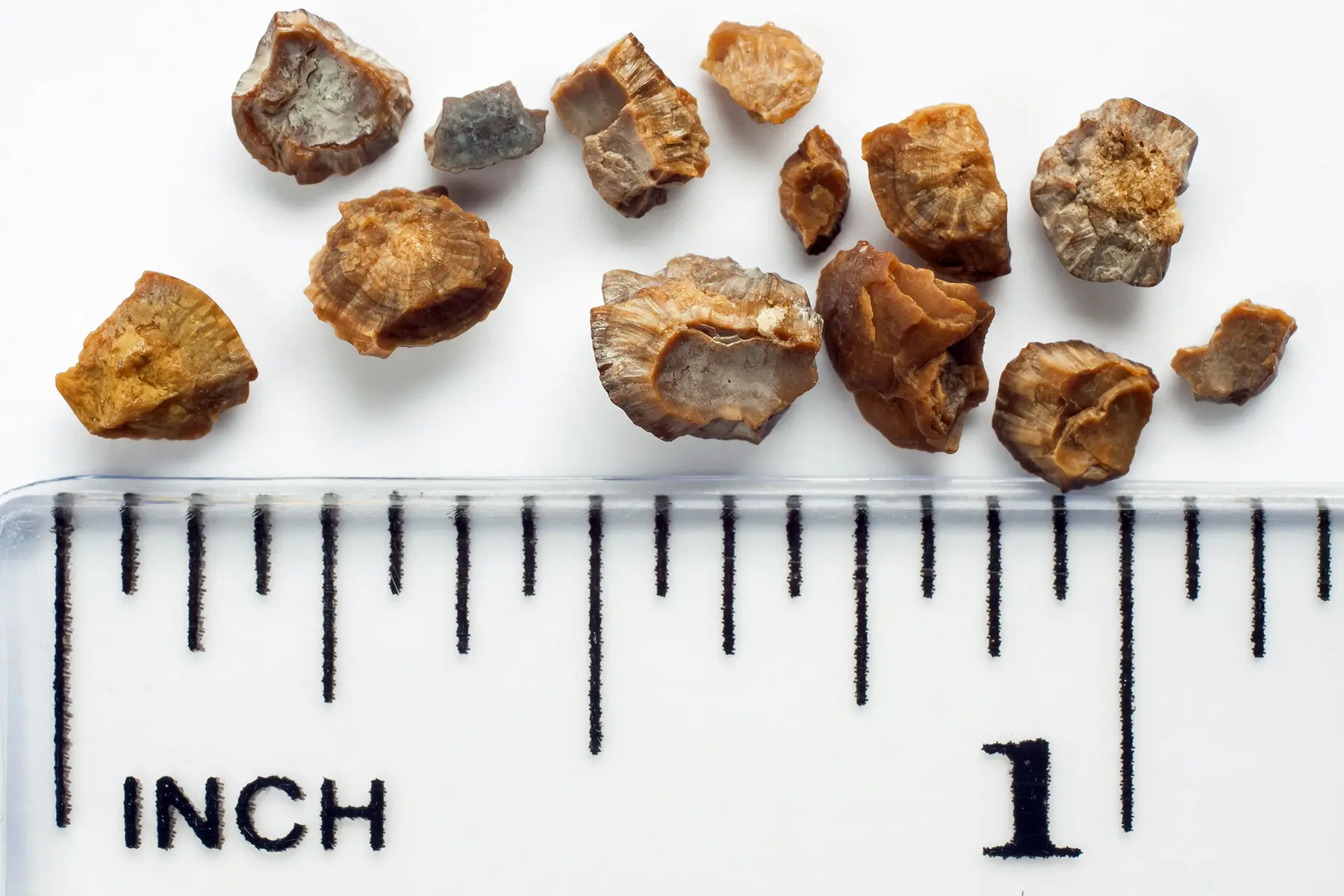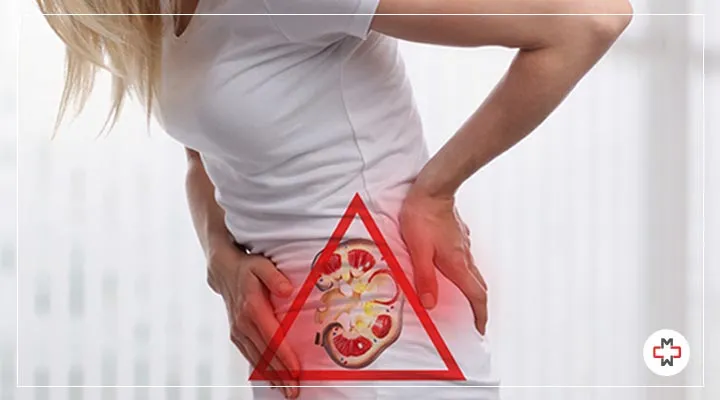Comprehensive Guide to Kidney Stones vs UTI: Diagnosis, Triggers, and Alleviation
Wiki Article
Exploring the Manifestations and Causes of Kidney Stones in Contrast to Urinary System Infections: A Thorough Guide
The exploration of kidney stones and urinary system infections (UTIs) discloses a complicated interplay of signs and symptoms and underlying reasons that require mindful evaluation. What are the vital differences in their signs and symptoms, and how might these notify treatment techniques?Review of Kidney Stones
Kidney stones, also understood as renal calculi, form when certain compounds in the pee crystallize and accumulation, resulting in the development of tough down payments within the kidneys. These stones can vary in dimension, varying from a grain of sand to a golf ball, and can be made up of different products, the most common being calcium oxalate, uric acid, struvite, and cystine. The development of kidney rocks is affected by a number of elements, including dietary behaviors, fluid intake, and genetic predisposition.Signs and symptoms of kidney stones might consist of serious discomfort in the back or side, blood in the urine, nausea, and regular peeing, particularly as the stone relocates with the urinary system system. Diagnosis generally includes imaging studies such as ultrasound or CT scans, alongside urinalysis to recognize the stone's composition.
Treatment options vary based on the size and type of rock, as well as the intensity of signs (Kidney Stones vs UTI). Tiny stones might pass normally with boosted liquid consumption, while bigger rocks might require clinical interventions such as lithotripsy or surgical removal. Understanding the pathophysiology and danger aspects linked with kidney stones is crucial for efficient avoidance and management
Summary of Urinary System System Infections
Urinary system system infections (UTIs) are usual bacterial infections that influence any component of the urinary system, consisting of the kidneys, ureters, bladder, and urethra. They primarily occur when germs, typically from the gastrointestinal tract, go into the urinary system, causing swelling and infection. UTIs are categorized right into 2 major types: uncomplicated and difficult. Uncomplicated UTIs normally take place in healthy and balanced individuals with normal urinary systems, while challenging UTIs may emerge in individuals with underlying problems, such as architectural abnormalities or compromised immune systems.The frequency of UTIs is notably higher in women than guys, largely due to physiological distinctions, such as a much shorter urethra. Risk elements include sex, specific contraceptive techniques, urinary system retention, and dehydration. The medical diagnosis of UTIs is normally verified via pee tests, which may reveal the existence of germs, leukocyte, or red blood cells.

Signs of Kidney Stones
The pain connected with kidney rocks can manifest in numerous ways, frequently leading individuals to look for medical focus. One of one of the most usual signs is severe discomfort, normally local in the reduced back or side, which may emit to the abdominal area or groin. This discomfort, typically called sharp or cramping, can happen unexpectedly and may vary in strength.Furthermore, people may experience hematuria, or blood in the pee, which can vary from microscopic total up to visible discoloration. This sign might be accompanied by changes in urinary routines, such as boosted regularity or urgency, as well as discomfort throughout peeing. Nausea and throwing up are additionally prevalent, commonly resulting from the body's reaction to extreme pain.
In some situations, people may experience fever and cools, particularly if a second infection creates as a result of the blockage brought on by the stones. In general, the combination of serious discomfort, hematuria, transformed urinary patterns, and stomach signs and symptoms can offer considerable insight right into the existence of kidney stones, calling for prompt medical analysis and treatment. Understanding these signs is important for prompt diagnosis and reliable management of the condition.
Signs And Symptoms of Urinary System System Infections
Infections within the urinary system system usually present a variety of unique signs and symptoms that can dramatically influence day-to-day life. One of the most common signs include a persistent impulse to urinate, commonly come with by a burning sensation during peeing, called dysuria. People might additionally experience boosted regularity of urination, generating little quantities of urine each time.Various other noteworthy signs and symptoms include fetid or cloudy urine, which may indicate the existence of bacteria or pus. Sometimes, pee might show up red or pink because of the existence of blood, a problem called hematuria. Additionally, people may experience pelvic pain or pressure, which can better worsen the feeling of urgency.
Systemic signs may also materialize, such as fever, chills, and fatigue, specifically if the infection has ascended to the kidneys. It is important to identify these symptoms early, as without treatment urinary system tract infections can cause extra extreme problems. Kidney Stones vs UTI. Trigger clinical interest is advised when these symptoms are observed, allowing for suitable analysis evaluation and therapy to minimize pain and avoid further health and wellness problems
Root Causes Of Each Problem
Often, kidney stones and urinary system system infections occur from distinct yet in some cases overlapping causes that can influence people in different ways. Kidney stones usually develop as a result of metabolic elements, nutritional choices, and genetic tendencies. Increased levels of calcium, oxalate, or uric acid in the pee can bring about stone formation. Dehydration, inadequate fluid intake, and high-sodium diet plans can exacerbate these problems, advertising condensation within the urinary system tract.
Understanding these unique causes is important for prevention and treatment. Kidney Stones vs UTI. While lifestyle modifications might mitigate the danger of kidney stones, proper hygiene and prompt therapy of urinary system infections are necessary for reducing their recurrence and connected issues
Verdict
In recap, kidney stones and urinary system system infections present distinct signs and symptoms and underlying causes. Kidney stones are characterized by serious discomfort and metabolic factors, while urinary system infections mostly include bacterial infections bring about urinary necessity more helpful hints and pain. Both conditions can result in hematuria, their formation systems vary dramatically. Recognizing these distinctions is essential for effective medical diagnosis and therapy, eventually enhancing patient end results for those impacted by either condition.The expedition of kidney stones and urinary system tract infections (UTIs) discloses a complicated interplay of signs and symptoms and underlying causes that call for cautious exam.Urinary system tract infections (UTIs) are typical bacterial infections that impact any kind of part of the urinary system, consisting of find more information the kidneys, ureters, bladder, and urethra.Often, kidney stones and urinary system tract infections develop from distinct yet occasionally overlapping causes that can affect people differently.In recap, kidney rocks and urinary system infections present distinctive symptoms and underlying causes. Kidney stones are identified by extreme pain and metabolic variables, while urinary tract infections mainly include microbial infections leading to urinary system necessity and discomfort.
Report this wiki page